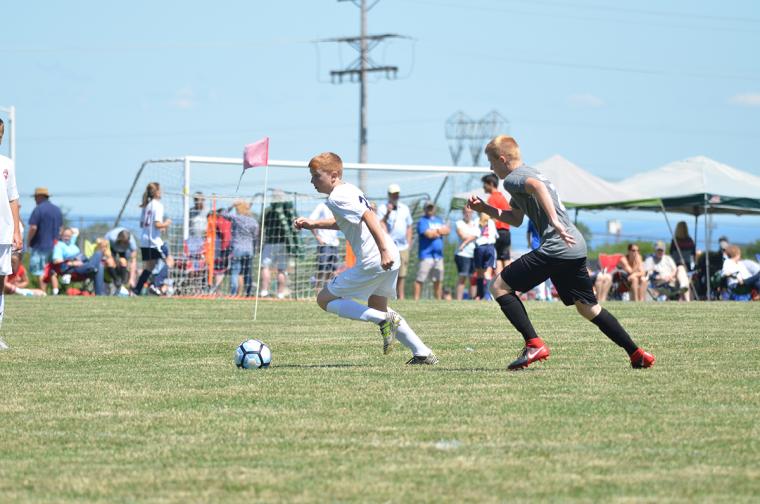

As destinations, our jobs are about more than just winning bids. Creating long-term relationships with event rights holders through exceptional service and retaining events is always our goal.
In an extremely competitive environment, the value of a positive experience – for athletes, spectators, event owners and destinations – cannot be overstated. After we as destinations sign a new event, we consider the many ways to create an experience that will make the event owner understand that his or her event is not just any other event on the annual list. Event owners are hoping for the same thing, so the following steps apply to both parties, really.
 It Starts with Service
It Starts with Service
The bid is successful, and the event has a new home. Congratulations! Now the real work begins.
Though we are all in the business of soliciting new events for our cities and though owners and rights holders are in the business of producing a good event, nobody’s job can stop there. The service provided by a sports commission or CVB can make all the difference in whether an event decides to come back, and it starts at the very beginning. A local host organization, with acute familiarity of the region, has the ability to make an event director’s job very easy in planning his or her event. And isn’t that really what we’re all here for?
If you’re an event owner, don’t wait to ask for assistance from us. As destinations, we shouldn’t be waiting either. The event organizer and destination obviously have decided they like one another enough to decide to work together, so both parties need to continue to advance that first impression to make a truly lasting memory that will lead to a long-term contract.
For example, as destinations, we need to start thinking for the event organizer, relying on our experience to identify the unique areas of need in the city or venue we think the owner will encounter when he or she begins to truly start planning the event.
Both sides need to ask questions. Are there unique permits or licenses that need to be obtained? Should a local club or organization be aware of the event or get involved? Are there local vendors or commodities the event should consider working with? Can the destinations provide an event rights holder with a comprehensive list of unique services or attributes of the area?
You may have discussed some of these things already, but a review of similar events the destination has hosted can help draw parallels to the new event and create a checklist to share. For most, this should be a fairly simple exercise early in a new relationship that will show, beyond a doubt, that both sides are thinking about the event and want to play an active role in its success.
Something else we’ve seen is that event directors like to feel supported in their efforts. The added attention goes a long way in leaving a lasting impression. We want event owners to think of our destination and to remember how easy, how fun and how memorable the event was, so as to leave absolutely no question about wanting to work here again.
 So, what do event owners often suggest, or what can they ask for, that will help the event succeed in a destination?
So, what do event owners often suggest, or what can they ask for, that will help the event succeed in a destination?
• Signage welcoming athletes
• Working with hotel partners to wear event T-shirts while athletes check in
• Pitching the event story and arranging for interviews with local media before and during an event
• Scheduling a fun Snapchat filter that athletes can use in between competition (which doubles as great promotion of the destination).
Modesty will get you nowhere and neither will trying to do everything yourself. If destinations keep the event organizer informed of what they are doing to promote and support the event, and if event owners ask for what they need, it helps the event succeed. Event organizers are constantly evaluating existing locations and, in most cases, looking ahead to when and where the next event will take place. We want to constantly make the case that the best place for them to be is exactly where they are.
Communication Really Is Key
This point may sound basic, but getting caught up in the office day-to-day often pushes forward-thinking communication to the back burner. For destinations and event owners, the constant work associated with an event can make it difficult to stay in touch. Simple communication can go a long way, not only to ensure each detail is worked out, but to let each side know they are top of mind. This regular practice is important for creating long-term relationships.
It is important to find out early in the partnership what form of communication works best for both sides. For instance, some organizers work events around a full-time job and don’t want to be taking (or can’t take) event-related phone calls during regular business hours but are happy to answer e-mails in the evening. It’s good to know the ground rules from the onset so all efforts to communicate are effective.
 It’s also important for event organizers to state up front about what kinds of experiences they have had in previous event locations. These experiences can either be positive ones or areas of difficulty. This type of conversation sets up expectations for the event and will allow destinations the opportunity to work behind the scenes to make certain to duplicate, or better yet, improve the pluses and eliminate the minuses during the event in their destination.
It’s also important for event organizers to state up front about what kinds of experiences they have had in previous event locations. These experiences can either be positive ones or areas of difficulty. This type of conversation sets up expectations for the event and will allow destinations the opportunity to work behind the scenes to make certain to duplicate, or better yet, improve the pluses and eliminate the minuses during the event in their destination.
The end of an event shouldn’t mean the end of communications between an event director and a destination. It’s so important to show gratitude when an event concludes. Taking the time to send a simple thank you card or an event- or location-specific gift. Getting that feedback is essential to sharing the message that you’re already looking forward to the next year.
Communicate consistently to bring everything you’re doing behind the scenes front and center and compile all your efforts in a report at the event’s end. Creating this level of transparency can aid in the ability for a destination to retain an event, and for the ability of an event owner to say they want to return.
Connections Make the Difference
As sports commissions or CVBs, we know the destination better than anyone else. We know the major players and the key venues. We also know how to deliver all the commodities an event owner needs to be successful. These connections are one of your most valuable assets. To an event rights holder, who often is coming into a destination blindly, local connections can make all the difference in the world between success and failure.
Being able and willing to introduce an event organizer directly to a venue operator, city official or possible local sponsor is an extremely valuable tool toward building event retention. As an event owner, be sure to ask in advance for referrals to these services as they are the building blocks of a successful long-term relationship.
Another area where long-term contracts can benefit is through local sponsorships. Some destinations may not do direct sponsorship sales on behalf of events but may instead be willing to introduce event organizers to contacts at local businesses, particularly if there’s a possible synergy between the two entities. Be sure to ask about these services in advance as it may help eliminate the necessity for cold calls. Destinations have a personal understanding of the inner workings of local politics and preferences of major potential sponsors that can alleviate the possible headaches that often accompany soliciting sponsors without any prior existing relationship.
Utilizing connections in year one can quickly bring about stability for year two and beyond. Don’t forget that it’s easier for both the destination and the event organizer to hold annual events, or events on a regular location cycle, rather than starting from scratch in a new location year-after-year. In most cases, the event organizer is looking for stability and repeat events as much as the destination.
 It’s Not Just an Event, It’s an Experience
It’s Not Just an Event, It’s an Experience
Sports tourism is no longer about teams simply traveling to a destination for competitive, diverse tournaments. The industry as a whole has become experience-driven, with athlete experience getting top billing when an event director makes a determination as to whether the event should return. What did the athletes have to do between competitions? What activities encouraged team growth? Did our traveling families enjoy themselves? Would they want to return in the future? Those are common questions asked when determining an event location.
To make sure of having a positive experience, look first to your host city’s event calendar and determine if there are other events happening that could impact your event’s success. Sometimes, there are and the impact is positive.
In Erie, we are known for our waterfront. For several years we have hosted a power boat poker run event that sees a gathering of million-dollar powerboats on our lake shore. This event draws hundreds of spectators from the region to that particular area of the city to check out the unique water crafts. After seeing the potential of the poker run as a spectator event in its first year, we began to search for other events that could complement it. In 2017, we were fortunate enough to host the HydroFlight National Tour on the same weekend, melding two unique waterfront events into one grand “Waterfront Weekend.”
Erie marketed the events as one, drawing crowds in the thousands, and greater media exposure to both events. Participating athletes had the opportunity to interact and watch one another, adding to their overall experience. Furthermore, Erie partnered with the local downtown organization, which hosts a weekly summer block party, to host one that week in the same location. The block party created a new opportunity for exposure for Erie’s Waterfront Weekend and athletes were treated to a free pre-event concert which encouraged extended stays.
These types of partnerships not only bolster community in a host city, but often create an experience that shows an event rights holder a destination is putting effort into making the event successful. That is an important, crucial point in helping to ensure an event will return.
Conversely, our city hosts an annual weekend motorcycle rally that attracts thousands of bikers from all over the country each July. When we meet with event organizers interested in a July weekend for their event, we know to avoid that weekend, mainly because our hotels are mostly filled to capacity and rooms that might be available would be pricey and would send a poor message to a new event.
Sometimes, multi-event partnerships are not an option. Still, there are plenty of opportunities to create an outstanding experience for all those involved. Seek out partnerships with local amenities and attractions to try and offer athletes and spectators a unique experience when visiting the city. After all, both event operators and destinations want to hear the same thing: that participating athletes had a positive experience in the city, and that they had a special, memorable experience. SDM

